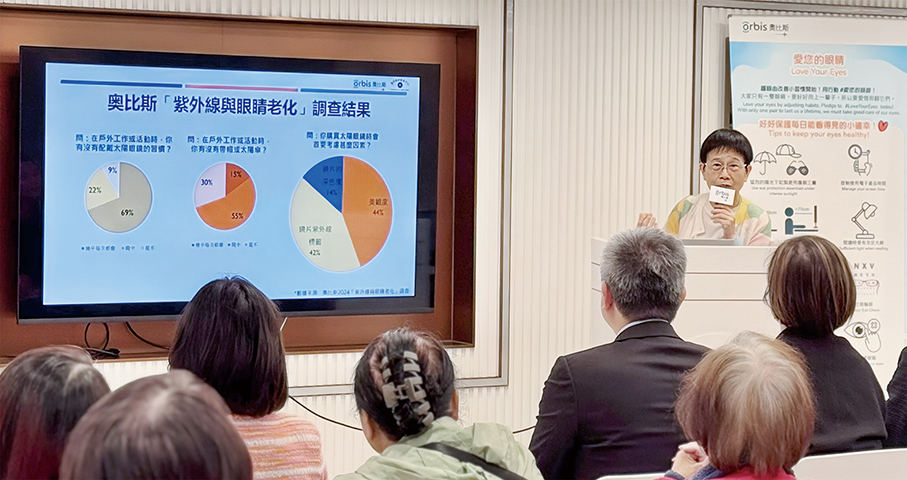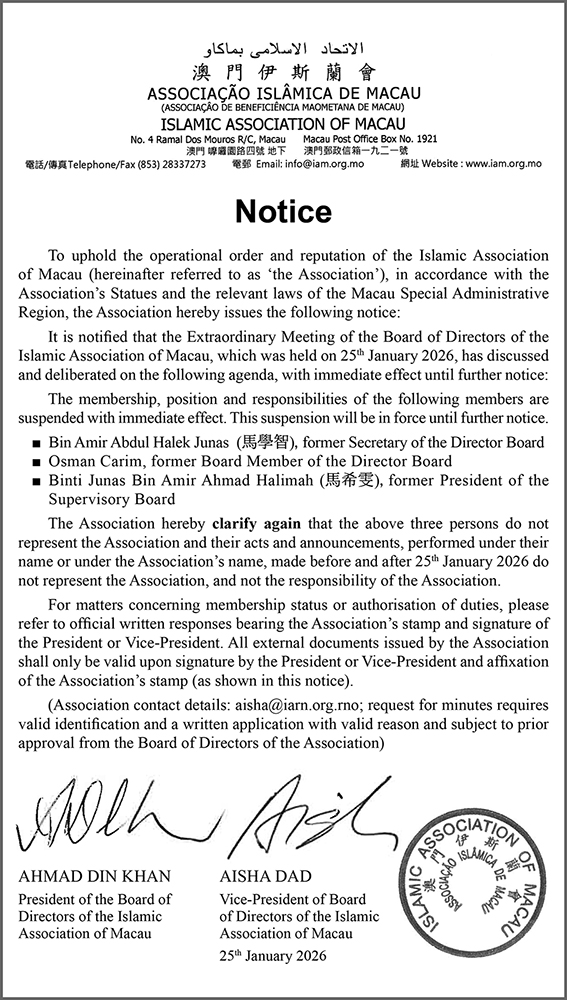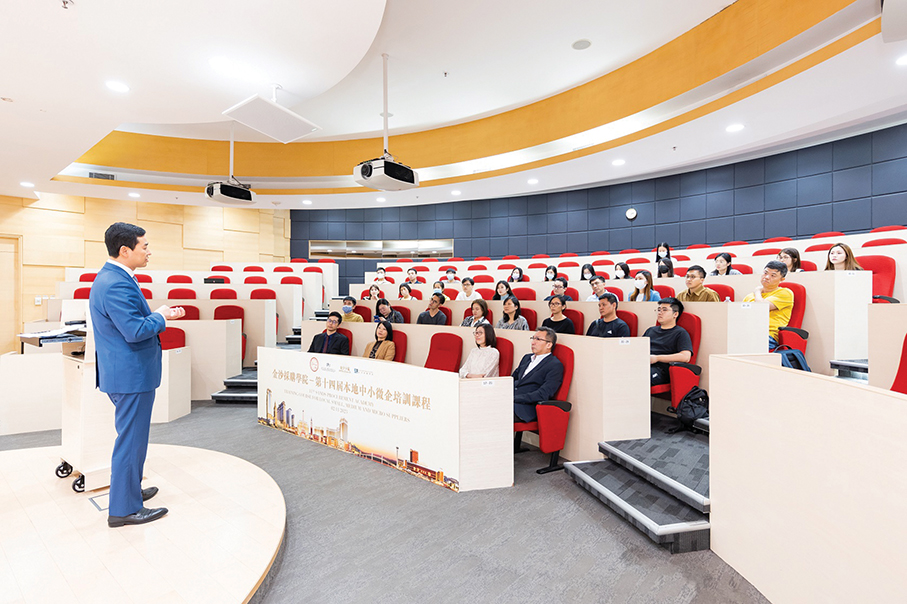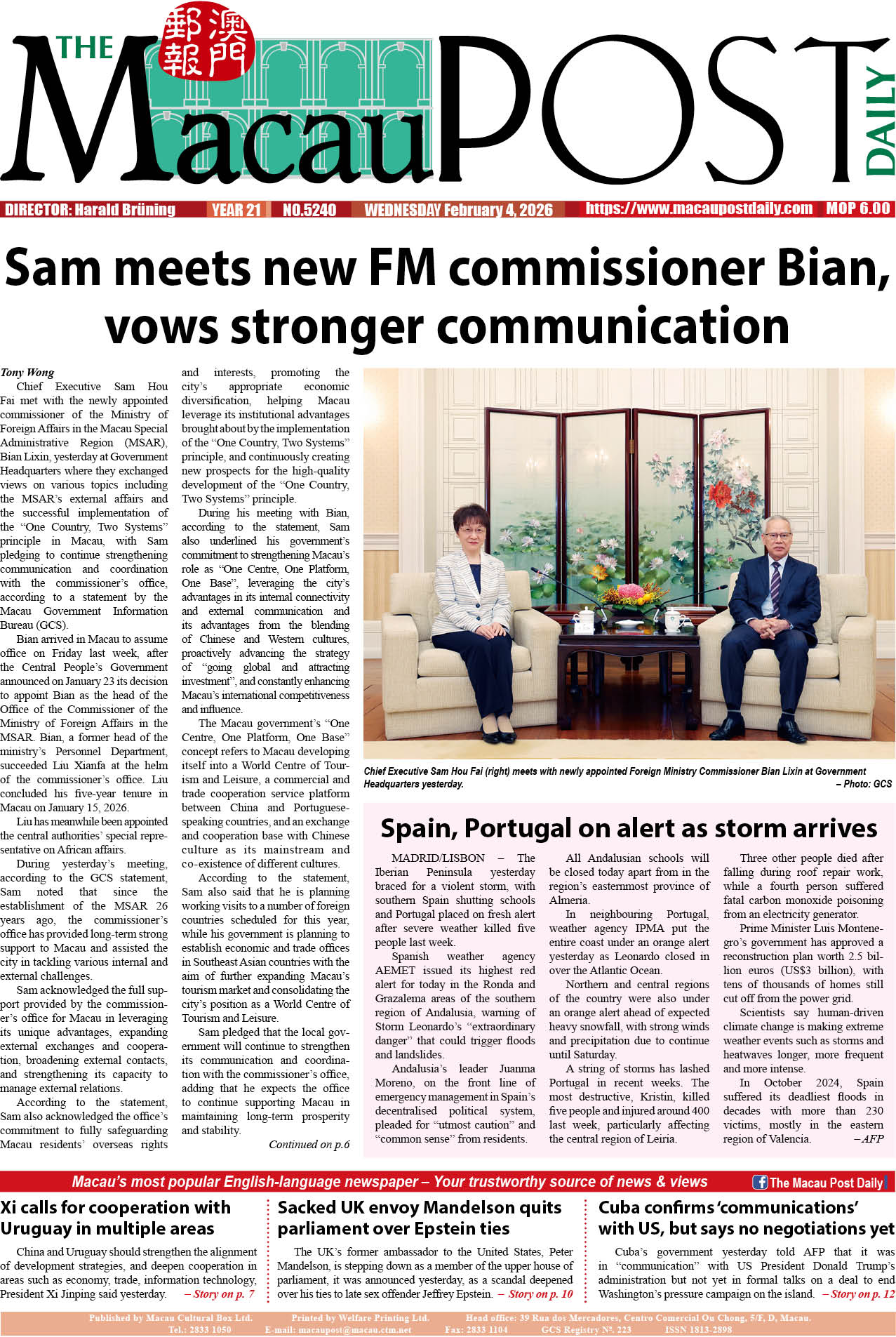Orbis Macau held its regular Eye Care Health Talk and the “UV Rays and the Ageing of the Eyes” information session on Friday, with data collected from the annual online quiz revealing that nearly 60 percent of respondents showed early signs of eye ageing, while 16 percent also faced high ultraviolet (UV) exposure, according to an Orbis Macau statement.
The event was held at the Bank of China (Macau) Ho Lan Yuen branch and marked the end of the two-month long annual advocacy and fundraising campaign Orbis “2024 Action for Sight”.
This year’s quiz was on “UV Rays and the Ageing of the Eyes”, with the statement noting that 582 valid responses were received over seven weeks and were collected and analysed by Ying An Medical Centre. Ophthalmologist Dr Lo Peng Iok explained the results, with the overall data highlighting the “urgent need to strengthen public awareness on eye care and protection”.
The results show that 55 percent of respondents across all age groups showed moderate or higher levels of eye ageing, and “particular attention” should be paid to those under 18 due to their young age. The statement said that sensitivity to light, seeing halos around lights or blurriness when looking at bright light, and reduced clarity of vision at night are among common symptoms of eye ageing.
Moreover, 16 percent of respondents showed exposure to UV rays, emitted both naturally and artificially, for over five hours daily, and half the respondents were exposed for seven hours or more, with those working outdoors such as construction workers, drivers, athletes, and photographers being more at risk, with the need for protective measures emphasised, according to Dr Lo.
The statement added that the results show that there is “an inadequate level of awareness on eye care and protection” among people in Macau, with 47.8 percent of respondents never wearing sunglasses during outdoor activities, and for those who do, roughly 40 percent prioritise UV protection as a factor when choosing sunglasses. However, nearly 60 percent focus on aesthetics or the darkness of the lens.
Meanwhile, 30 percent of respondents do not use hats or umbrellas during outdoor activities, the statement said. It also pointed out that indirect UV reflections from grass, soil, among others and water surfaces can harm the eyes, with snow reflecting up to 80 percent of UV rays and sand reflecting 15 percent.
Dr Lo was quoted by the statement as saying: “Overexposure to UV rays can damage the lens and retina, accelerating eye ageing. I urge residents to use suitable sunglasses or protective eyewear, as well as caps and umbrellas where applicable – during outdoor activities to reduce UV exposure to the eyes”. One should also choose sunglasses with UV400 or 100 percent UV Protection labels to effectively block UV rays, he said.
The statement added that 80 percent of respondents do not have regular outdoor exercise habits, which can “effectively prevent and alleviate myopia [shortsightedness].”
An overview of the harmful effects of UV rays to the eyes and how prolonged exposure can accelerate eye ageing and lead to serious eye conditions, along with eye care tips, were also presented on Friday.
The statement also urged people to add an annual eye examination to their health regimen and use suitable eye protection.
More information and donation details are available on www.orbis.org.

This photo taken and provided by Orbis Macau on Friday shows Dr Lo Peng Iok presenting the findings of “UV Rays and the Ageing of the Eyes” and sharing eye care tips.









